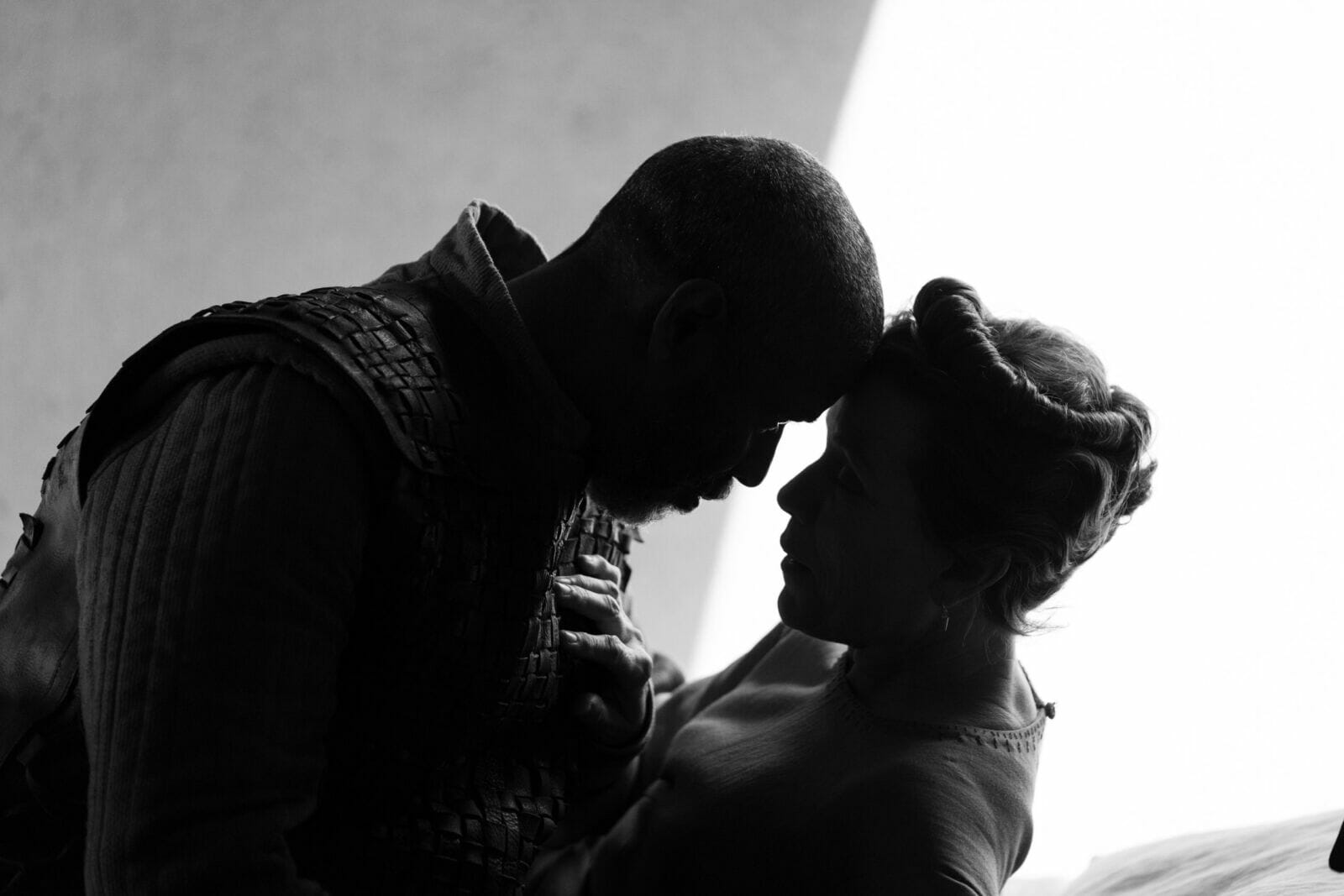I like to think that Joel Coen adapted Macbeth out of sheer pettiness, seeing as his brother and longtime collaborator took a break from filmmaking to “focus on theater”. Or, perhaps, Joel felt unshackled from his brother’s presence and decided he alone should join the pantheon of great directors who’ve tackled the Scottish play. Or, most likely, I have strife and betrayal on the mind because The Tragedy of Macbeth still lingers there, and I’m sowing imaginary discord between brothers who are probably getting along fine. Whatever the case, we got a stunning adaptation out of lonely Joel.
In adapting Macbeth to the screen, Coen indeed puts himself in legendary company. Some of the greatest filmmakers of all time—Kurosawa and Welles, namely—have taken on Shakespeare’s tragedy with timeless results. The highest compliment one can pay upfront to Coen’s version is that it earns a place in the Macbethian canon, even if it doesn’t stand shoulder to shoulder with, say, Throne of Blood. A few screenplay and performance complaints aside, The Tragedy of Macbeth is remarkable for how distinct an imagining of the play it is. For all the story’s adaptive familiarity, Coen’s take is quite distinguishable.
READ ALSO: Review: ‘Spider-Man: No Way Home’ is worth celebrating
Its aesthetic ingenuity strikes immediately. Owing much to German Expressionism, Stefan Dechant’s production design alternates between sparse, lonely exteriors and severe, jagged architecture, adorning the film in an otherworldly discomfort that amplifies the play’s unease. Bruno Delbonnel’s cinematography is of the same mind: the frame is cleaved by chiaroscuro lighting and sharpened by persistently shallow depth of field, forcing our gaze on spartan compositions and harsh foregrounds. The effect is forceful and alienating. In concert with portentous, heavy sound design, the film’s oppressive formalism thickens the air with dread. The aesthetic is deceptively simple yet fraught with menace—like black box theater in hell.
The performances, always front and center in those harsh foregrounds, are by and large fantastic. Denzel Washington exhibits a seasoned comfort with Shakespearean cadence, hitting Macbeth’s best lines with aplomb. The most mesmerizing performances belong to smaller roles, however. Alex Hassell, a veteran of Shakespeare on stage, is deliciously duplicitous as Ross, whose role has been expanded to play up some of the text’s more sinister implications. Were The Tragedy of Macbeth performed at the Globe, Hassell would surely rile up the crowd in the pit by shooting glances past the fourth wall.
Far and away the most transfixing presence is Kathryn Hunter as the three witches: she contorts her body and voice in preternaturally fearsome ways, elevating her scenes to masterstrokes of physical horror. Her every appearance is a frightening delight. The only weak link in the cast is, oddly enough, Frances McDormand, who gives a less menacing take on Lady Macbeth that doesn’t fit the tone.
The fault may not lie entirely with her, as Coen’s truncated adaptation prevents the interplay between the Macbeths from fully developing. It sours to great effect in the film’s final act, but the opening half is too condensed to sell their thirst for power convincingly—it plays more like an opportune stumble into power. The rest of the film suffers from no such reduction, though. It’s a sterling adaptation. It may not breathe new life into the text, but it sure as hell boldfaces the horror within.
★★★★ (4/5)




